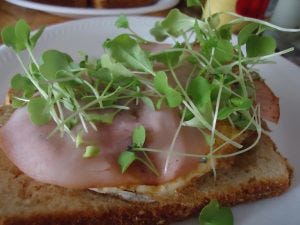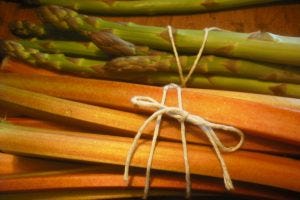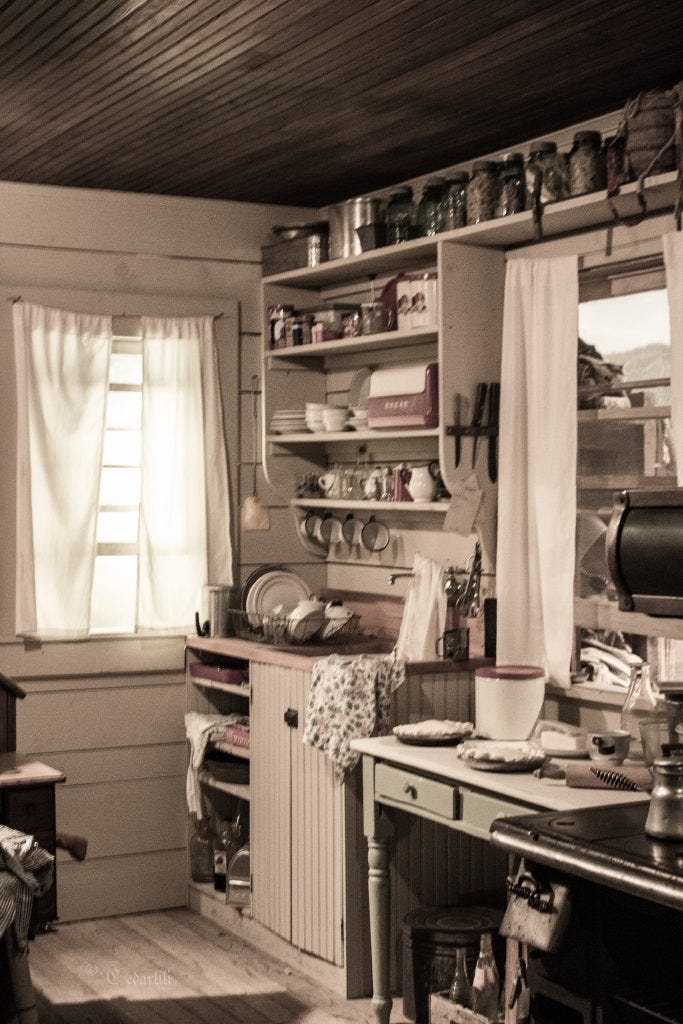Unnatural Foods
This isn't, really, a food blog. If I seem to dwell overmuch on the subject, it is perhaps because food is very important to life. Food is the fuel our bodies burn to do our daily activities, which we must do, to earn more food. Is it any surprise that food is a pivotal pillar of life? We think about food, we seek out food, we buy cookbooks and covet more - have you ever seen the price of a cookbook? And really, how different are the recipes inside that one from this one, over here? I'm not knocking cookbooks, by the way. I love them and don't have more only because I lack the space, and besides, with the advent of food.com and Pinterest, I can find new recipes and feast with my eyes at the same time.

Farm Fare: fresh, fast, and filling. Doug Irvin, a fellow traveler in life, and thus a food lover as well, brought an excellent article to my attention this morning. It's long, it's rich and full of well-balanced historical comments, I highly recommend that you read the whole thing. But if you don't feel the time or the inclination, you will find the core of the author's point below. Rachel Laudan writes an impassioned plea for culinary modernism.
That food should be fresh and natural has become an article of faith. It comes as something of a shock to realize that this is a latter-day creed. For our ancestors, natural was something quite nasty. Natural often tasted bad. Fresh meat was rank and tough; fresh milk warm and unmistakably a bodily excretion; fresh fruits (dates and grapes being rare exceptions outside the tropics) were inedibly sour, fresh vegetables bitter. Even today, natural can be a shock when we actually encounter it. When Jacques Pepin offered free-range chickens to friends, they found “the flesh tough and the flavor too strong,” prompting him to wonder whether they would really like things the way they naturally used to be. Natural was unreliable. Fresh fish began to stink. Fresh milk soured, eggs went rotten. Everywhere seasons of plenty were followed by seasons of hunger when the days were short. The weather turned cold, or the rain did not fall. Hens stopped laying eggs, cows went dry, fruits and vegetables were not to be found, fish could not be caught in the stormy seas. Natural was usually indigestible. Grains, which supplied from fifty to ninety percent of the calories in most societies have to be threshed, ground, and cooked to make them edible. Other plants, including the roots and fibers that were the life support of the societies that did not eat grains, are often downright poisonous. Without careful processing green potatoes, stinging taro, and cassava bitter with prussic acid are not just indigestible, but toxic.

In your world, who grows the food? I have written here on this blog about the silliness of the claims about 'organic' foods, and recently have seen a few articles echoing scientific studies that back up my own impressions. Inorganic, folks, is not food. All food is organic... the label you see in the supermarket is marketing, nothing more. The studies are conflicting about whether eating organic is more nutritious, or offers any real benefit at all. As with any information, there is a need to approach the data without bias, and ask yourself who gains from promoting the results. Really, I suspect that eating mindfully, whether you spring the extra bucks for the mental warm fuzzies of buying 'organic' or just buy the cheap but good vegetables off the rack, will make a difference. Pay attention to your food and nutritional intake, and most importantly, exercise. Much is made of the American 'plague of obesity' and the origins of it. I've heard theories that range from the advent of video games to the leptins found in 'GMO' foods (and there is another sloppy definition, but I'll leave it for a different day, different article). Comparisons are drawn between the youth of the 40s, or even 60s, and now. Now, you're as likely to see a class photo full of doughy-face kids as you are to see the lean cheeks of fit young men and women. But ask yourself this: what is the real difference here? Is it the foods? Food fads have been with us since Og and Nog first disagreed on how well to broil (or not) their haunch of wildebeest. Is is exercise? In an automated world, young labor is no longer needed on the family farm, garden, kitchen... Have you ever considered how many labor-saving devices you have in and around your home? What of those chores, lacking the devices to complete them, would have been assigned to the kids underfoot. Just how young did they start working, back then? I know the nature of work has shifted, as we entered a technological age in the 1970s with the advent of the personal computer. The repercussions of that are still rippling across the world. How to lose weight, then, becomes the question. Well, as someone who is attempting to slim and tone for her wedding, I can tell you that I didn't reach for the nearest fad diet book. I refused to pay lots of money for 'diet food' of dubious nutritional value. Instead, I'm paying attention to what I eat (and discovering that due to my recent schedule and habit of missing meals, I was eating, to my shock, not enough) and I am increasing my exercise level exponentially. It's working, too. I've lost five pounds in three weeks, and more important than weight, I am building the muscle back. So the next time you start to reach for the 'natural' or 'organic' label in the store, stop and think before you pay the premium. Don't just rush out to try the latest hot diet (or, dear ghod, the horrible 'cleanses') some celebrity has endorsed in return for a healthy check.

A Kitchen, old-school.
(photo taken at the High Desert Museum in Bend, OR)




